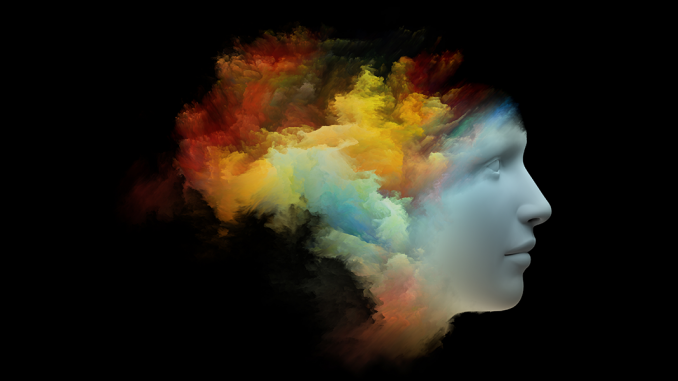
[ad_1]
Migraine is one of the most prevalent illnesses in the world. Some 39 million people in the United States and 1 billion people worldwide suffer from migraine headaches, or one in eight men, women, and children living on the planet today. Almost half of all women will experience migraines at some point in their life, most often between the ages of 35 and 45.
Many treatment options are available, including a bevy of preventative and pain-relieving medications. Some sufferers have even turned to psychedelic drugs for relief, which is isn’t so surprising when you learn that LSD was first developed as a vasoconstrictor, a class of drugs used to treat migraines.
Cannabis also holds promise as a convenient and effective treatment for pain from migraines and other headaches. According to a review article published in August 2021 by a group of researchers based in Florida, current evidence indicates that cannabis use “decreases migraine duration and frequency” through glutamine, inflammatory, opiate, and serotonin pathways.1 Two of the 34 studies included in the review are discussed in greater detail below.
In addition, two other recently published papers suggest that terpenes, the compounds responsible for the fragrance of the cannabis plant, could have something to do with this therapeutic effect.

THC-rich cannabis flower for migraine & headache relief
A study published in the Journal of Integrative Medicine2 in September 2020 found inhaled cannabis to be highly effective for headaches. Researchers at the University of New Mexico drew upon more than 2.5 years’ worth of data from the digital app Releaf to study real-time links between cannabis intake and migraine and headache symptoms. Patients used the app to record pain intensity on a 0-10 scale prior to and immediately following cannabis consumption.
Ninety-four percent of users experienced symptom relief within two hours of cannabis use, with an average pain intensity reduction of 3.3. Men reported greater relief than women, and patients younger than 35 tended to improve more than older patients. This study found that THC levels above 10% (as reported by app users according to product labels) were the strongest independent predictor of symptom relief.
Concentrates are more effective than smoked flower
Inhaling cannabis reduced reported headache and migraine pain by about half and larger reductions were associated with concentrates than with flower.
A team based at Washington State University (WSU) examined archival data from another medical cannabis app called Strainprint to study the impact of inhaled cannabis on headache and migraine pain. The researchers also assessed the impact of gender, type of cannabis (flower or concentrate), dose, and concentration of THC and CBD on this effect.
After compiling data from thousands of sessions by hundreds of app users, the WSU researchers concluded that inhaling cannabis reduced reported headache and migraine pain by about half. Their results, published in May 2021 in The Journal of Pain,3 revealed that larger reductions were associated with concentrates than with flower. The authors also found that men reported greater benefits than women.
However, they also observed a tolerance effect with continued use: “[Cannabis’] effectiveness appears to diminish across time and patients appear to use larger doses across time.”
Terpene-based medicines for brain health
So what is it about cannabis that helps to improve migraine and headache symptoms? Is it primarily THC, as the first study suggests? Or is it THC and CBD together, which other evidence indicates is best for relief of acute pain?
Another factor may be terpenes, the plant compounds that both protect and impart flavor and fragrance to cannabis (and many other botanicals). Terpenes are increasingly being studied for their therapeutic effect in humans.
In an article published in August 2021 in the journal Frontiers in Psychiatry,4 researchers based in Australia reviewed evidence for benefits relevant to neurological and psychiatric disorders associated with two prominent cannabis terpenes, pinene and linalool. These compounds influence multiple neurotransmitter, inflammatory, and neurotrophic signals, the authors write. And existing data (mostly preclinical, meaning not verified in humans) suggest migraine is among the conditions – along with stroke, ischemia, and other forms of inflammatory and neuropathic pain – that may be helped by these terpenes.

Terpenes inhibit neuroinflammation
Terpenes are increasingly being studied for their therapeutic effect in humans.
An August 2021 review by Mexican researchers in Frontiers in Pharmacology5 considers terpenes as anti-inflammatory agents and evaluates their potential as alternative treatments for inflammation of the brain and skin. In the former category, inflammation is a typical feature of neurodegenerative diseases such as Alzheimer’s disease and Parkinson’s disease, the authors write. They also note a recent study by Iranian scientists6 who found an antidepressant-like effect in mice of limonene, another terpene present in numerous cannabis varietals, that appeared to be mediated through inhibition of neuroinflammation.
In what else does neuroinflammation likely play a role? Migraine. While the authors don’t specifically mention headache or migraine in their discussion of terpenes and neuroinflammation, it’s an area that warrants further investigation. With all these findings considered as a whole, what begins to take shape is as good a case for the entourage effect as you’re likely to find: THC, CBD, and at least a handful of terpenes in cannabis are all likely to play a role in the treatment of migraine pain.
Nate Seltenrich, an independent science journalist based in the San Francisco Bay Area, covers a wide range of subjects including environmental health, neuroscience, and pharmacology.
Copyright, Project CBD. May not be reprinted without permission.
Footnotes
[ad_2]
Source link

Soyez le premier à commenter